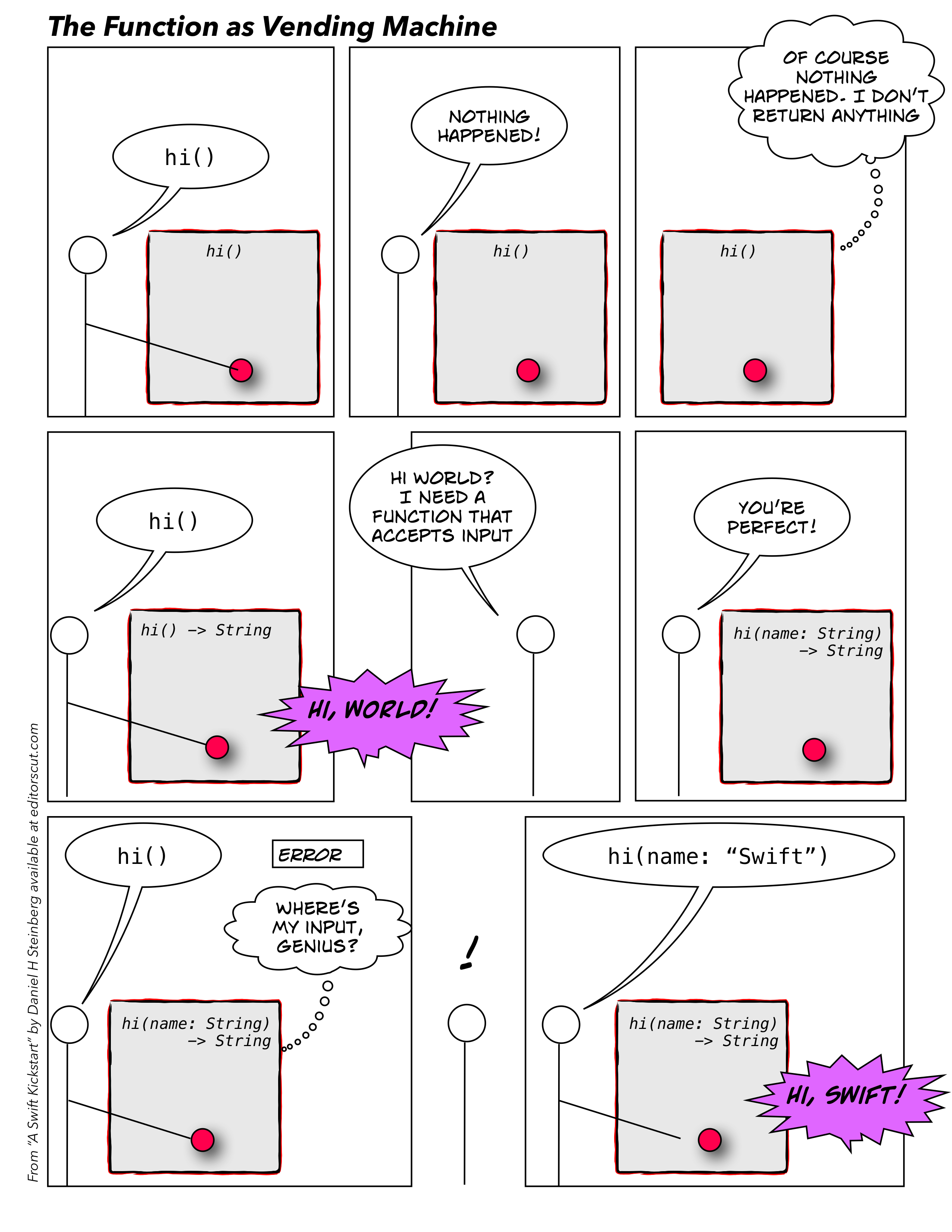Functions
I’m sharing the September post a day early.
There’s nothing really profound in this one - I’m just continuing to search for visual ways to describe functions.
This one will be included in the free update (well free if you own it already - if not you can buy it now and get the free update once it ships) of A Swift Kickstart.
This book is for folks new to Swift and so I gently start with the classic Hello World function. I’ve implemented it as “Hi World” because it fits better in comic form.
I know that this daring decision might throw you but it really isn’t to challenge years of tradition so much as to fit in large font in small rectangles.
func hi() {
print("Hi, World!")
}
Although this is a good and quick example in Xcode playgrounds, Swift playgrounds does not have a console which drives us to quickly include a function that returns a String rather than print it to the console.
func hi() -> String {
"Hi, World!"
}
By the way, if you haven’t been keeping up with Swift, this might look funny as we don’t need to include the return in a function with only a single expression. In other words we don’t need the following
func hi() -> String {
// the return in the following line is superfluous
return "Hi, World!"
}
“But Daniel,” you say, “it looks funny without the return.”
At first it does. Just as it looked funny, for those of us coming from Objective-C to see the return type at the end of the function signature or to not have semicolons at the end of a line.
It will grow on you.
In fact, you’ll wonder why return isn’t just assumed for the last expression of a function that is supposed to return something no matter how many lines it is.
i.e. it feels silly that this is fine:
func hi() -> String {
"Hi, World!"
}
but this doesn’t compile
func hi() -> String {
print("This doesn't compile - the next line needs a return")
"Hi, World!"
}
Anyway, back to the point. We really want functions that take input and produce output. That is the final form of this silly example.
func hi(name: String) -> String {
"Hi, \(name)!"
}
Here it is in comic form.

As always, let me know what you think.